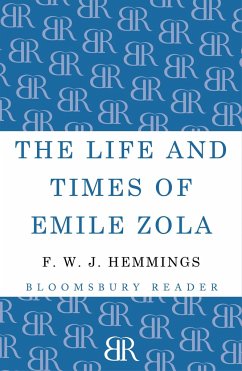Controversy surrounded Zola during his life-time, and controversy has followed him ever since. No other French writer was so violently attacked by contemporaries, none had a more devoted following. This high priest of Naturalism scandalized France by the frankness of his treatment of the seamier side of human nature and electrified the whole of Europe and America by his denunciation of the military establishment of his country over the Dreyfus case. His reputation has remained in dispute ever since his mysterious death in 1902, some critics arguing his work's consistently high and original literary quality, others its undue reliance on cheap sensationalism. This biography, which at was the first in English for twenty-five years when it was first published in 1966, draws on significant material to present a full and rounded account of a life that progressed from abject poverty to powerful influence and relative affluence, an account that considerably modifies our ideas about a writer who was always a public figure but at the same time a defensively shy and secretive man. F.W.J. Hemmings delineates the social facts that lay behind Zola's great panoramic cycle of novels Les Rougon-Macquart, with its theme of corruption spreading through all levels of French society from the festering economic degradation at the bottom of the social scale. Consideration of the real-life settings of such novels as The Drunkard, Nana, Germinal and Earth gives us enhanced appreciation of the compelling power of these works.
Bitte wählen Sie Ihr Anliegen aus.
Rechnungen
Retourenschein anfordern
Bestellstatus
Storno








